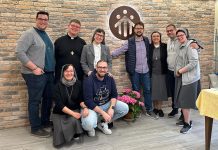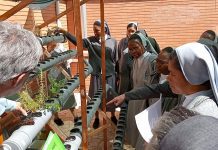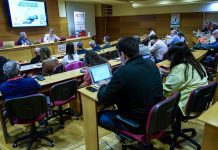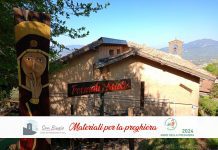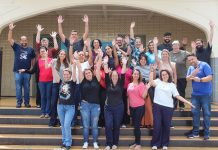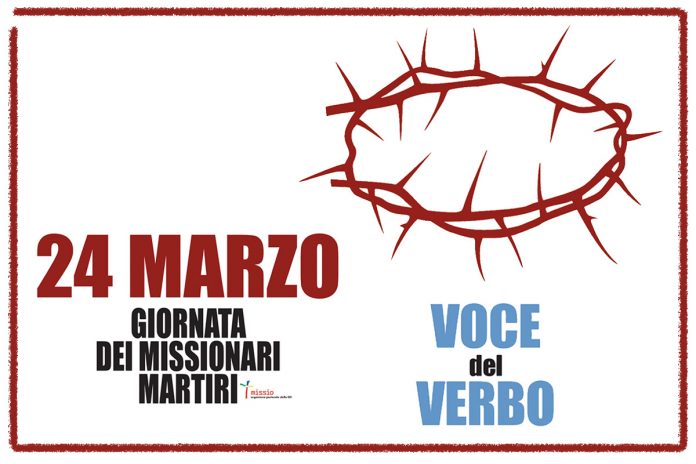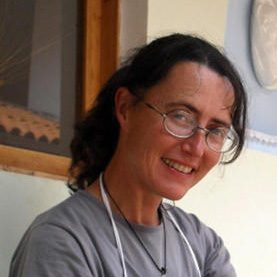Rome (Italy). On 24 March 2022, the 30th day of prayer and fasting in memory of the missionary martyrs is celebrated, promoted by the Missionary Youth Movement, today Missio Giovani, on the day of the assassination of Monsignor Oscar Romero (24 March 1980), assassinated in San Salvador by soldiers, his compatriots loyal to the regime. The reasons for the martyrdom of the Saint of America, canonized on 14 October 2018 by Pope Francis, was his closeness and having given a voice for the least.
Voice of the Word, is the theme of the Day 2022; the voice of the martyrs, in fact, is the voice of God made man to manifest His closeness to the fragility of life, which becomes a seed, a sprout for Christian communities.
In the video di presentazione, Giovanni Rocca, National Secretary of Missio Giovani, compares the Day of the Missionary Martyrs, to a day of prayer and fasting in Celebration of the Lord’s Passion, “in which we live and metabolize the death, sacrifice, cruelty, and suffering that grip this world and its people. But also, a day of celebration, of resurrection, of assumption of awareness that the epilogue of human life is only a transitory phase.”
According to data from Agenzia Fides, of the Pontifical Mission Societies, from 2000 to 2022, 536 missionaries were killed in the world. Nel 2021 sono stati 22 – 13 priests, one religious, 2 religious sisters, 6 laity – missionaries ad gentes, but also Catholic Christians engaged in pastoral activity. Men and women who ‘simply’ gave witness to their faith in contexts of violence, social inequality, exploitation, moral and environmental degradation; who shared daily life with their brothers and sisters, the same risks and fears, violence and deprivation, bearing the Christian witness made up of small everyday gestures as a seed of hope.
In the material for the animation and awareness of the Day, prepared by the Missio Foundation, among the video testimonies is that of Nadia De Munari, a lay missionary from Schio (Vicenza), killed on 24 April 2021 at 50 years of age, in a poor neighborhood of Nuevo Chimbote in Peru. She had been there for 30 years with the workers of Operation Mato Grosso (OMG), a voluntary youth movement at the service of the poor in Latin America founded by Fr. Ugo De Censi, a Salesian of Don Bosco.
Like him, Nadia has always lived “the need to give life to faith, not to be satisfied with the words of faith, but to be able to enter the real mystery of the poor, the young, the people around you,” says Massimo Casa in the video of the OMG.
Due to her skills as a kindergarten teacher, Nadia had been sent by Don Ugo to coordinate six kindergartens and an elementary school in a slum in Nuevo Chimbote, on the central-northern coast of Peru, a desert area where migrants from the Andes arrived to acquire a piece of land with the illusion of a better future, where misery and degradation manifested themselves with violence. “Nadia’s dream was to start with children. If you accompany children from an early age, you educate them so that they may desire to be good persons,” explains Massimo.
Here Nadia had also founded the “Mamma mia” family home for single mothers, where she welcomed teenagers in difficulty and where she herself lived. “It is precisely the young mothers who rescued her the night she was attacked and seriously injured with a machete to take away a handful of dollars and her cell phone. They tried to save her with a race against time to take her to the hospital in the capital Lima” (cf. “Nadia che amava i fiori” of Miela Fagiolo D’Attilia).
The frankness in words and in life, the desire to get as far as possible to the essence of things and to lead young people to be true with themselves and to share with the poor, her simple and genuine presence, but incisive in the life of those who knew her, these are the characteristics of Nadia that emerge from the testimonies. “Her commitment was at 360 degrees; she gave herself to this service. Her days were days of commitment, activity, dedication to planning and caring for those who are forgotten. In this giving of herself, Nadia was always serene. She was convinced it was a beautiful and important way to live her life.”
Nadia loved flowers and there in the desert, where they were missing, she would have liked to have a garden. Her life, like that of so many missionary martyrs, is now a seed sown in the soil of so many poor and young volunteers, who will continue to make the desert blossom with hope.




